Company Directors are typically classified as an “at-risk” individual, because they are at risk of personal liability stemming from their duties and obligations as a Director.
Director Duties and Obligations
Company Directors, Company Secretaries and in some circumstances executives and other people who control the way a Company operates (also known as shadow Directors or de facto Directors) owe duties and responsibilities to the Company and its Shareholders. These duties arise under the Corporations Act 2001 (Corporations Act), the common law and any Shareholders Agreement, Constitution or Executive Employment Contract.
Directors are generally responsible for running the day-to-day activities of a Company, including its business. The duties owed by Directors to a Company extend beyond the normal fiduciary duties of a senior employee to an employer as the Corporations Act and relevant WH&S legislation, impose legal obligations upon Directors, including:
- ensuring proper financial records are kept;
- ensuring the Company can pay its debts and does not trade whilst insolvent;
- understanding what the Company is doing at all times;
- acting in the best interests of the Company;
- acting in good faith and for a proper purpose;
- not improperly using their position to gain an advantage for themselves or cause detriment to the Company;
- not improperly using information gained from their role; and
- ensuring compliance with Work Health & Safety Laws, including the due to exercise due diligence.
Some examples of breaches of the duties above include:
- failing to disclose all relevant documents to the board of Directors;
- promoting personal interests above those of the Company;
- diverting a business opportunity away from the Company;
- failing to disclose all relevant documents to the board of Directors;
- allowing a Company to incur a debt when it is insolvent.
What happens if a Director breaches their duties or obligations?
If a Director is found to have breached their duties or obligations the Director may be personally liable for damages and fines. Directors also risk prosecution under the Work Health & Safety Act and even gaol time depending upon the severity of the breach.
An action for breach of a Directors’ Duty may be brought by the Company (including a Liquidator), by a Shareholder (with leave of the Court) or by ASIC.
Other Circumstances where Directors can be personally Liable
A Director may also be liable:
- in Liquidation where the Director has been a party to an insolvent transaction, including an unreasonable Director-related transaction and creditor-defeating dispositions;
- where the Company has failed to pay certain tax and superannuation obligations and the Director receives a Director Penalty Notice;
- where the Director has signed a Personal Guarantee and/or indemnity; and
- where the Director engages in misleading or deceptive conduct.



























